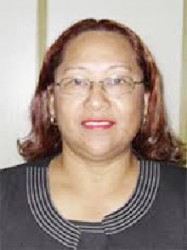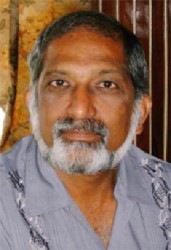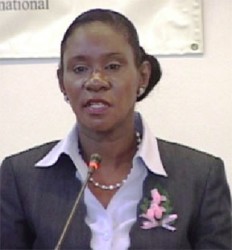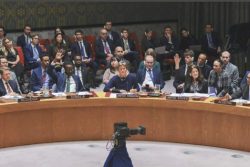The Ministry of Health yesterday blasted the media for reporting on the amounts spent on medical expenses for members of government even as APNU-AFC Coalition Leader David Granger stressed that the system needs structure.
Granger said that this “structured policy and guidelines” would be implemented under his leadership should his party win the May 11th Regional and General Elections. “There should be a law that governs the conditions under which members of the cabinet or members of the government access this particular facility…who how much and for how long that is what is needed,” Granger told Stabroek News yesterday.
On Saturday, Stabroek News reported that of the $361.4 million disbursed by the State as financial assistance for medical treatment in the 2012-2013 period, the majority – over $200 million – was spent on top government officials and their associates.
Stabroek News Editor in Chief, Anand Persaud said it was important that the public be aware of all classes of expenditure of taxpayers’ monies particularly when these were not explained or part of the public record.

Questions have been raised about the guidelines that govern State medical assistance to government officials and whether there is an enshrined policy. Members of the public who have approached the Ministry of Health for aid have often complained about the bureaucratic hurdles before they are granted partial assistance.
Breaking its silence yesterday, the Ministry of Health released a statement lashing out at reporting on the spending. “The Ministry of Health voices its absolute consternation at the unethical and disingenuous exposure of private medical details, concerning selected government officials,” it said.
“The Ministry of Health embraces and practices a policy, to render assistance indiscriminately and in a holistic manner, depending upon the nature of the medical condition and the financial needs of those seeking to obtain same,” it stated.
However, Granger said that evidence from the report shows that some of the expenses were not only excessive but were for cosmetic purposes for ministers of government and that bill should not be footed by taxpayers but through their respective insurance policies including the National Insurance Scheme (NIS).
He pointed to members of government using millions on dental work stressing that while they can afford requisite insurance to offset those expenses, ordinary citizens cannot and are not granted a fraction claimed by those government officials.
Against this background, Granger stressed the importance of a structured policy which lists the types of illnesses that qualify for state financial assistance and the duration of how long and how those payments should be.
“There must be a cap. There should be specific rules for benefits for people in office. I don’t know whether the rules govern medical treatment or the treatment of their family. But I know there is nothing that would have justified this spending we see,” he said.

“There must be a cap and other citizens, must be entitled. Everyone who uses the NIS must obey the rules and regulations of NIS and I would suggest that the ministers, if they have any benefits, should too, through the NIS as this is the scheme set up for this purpose,” he added.
Granger noted that he was alarmed by some of the figures reported.
“They certainly are excessive. Some of the purposes for which the money (was) used does not seem to be of an urgent medical or lifesaving nature.
We need to have rules to govern those eligible, the circumstances which would justify such expenditure and the limit and the duration…,” he asserted.
“If someone is suffering from a chronic disease it certainly cannot run into over a hundred million dollars which was the case of someone who wasn’t even a minister. There is an element of arbitrariness which is harmful to the public treasury,” he added.
The 2012-13 list includes over $116 million spent in one year on cancer treatment for now deceased presidential advisor Navin Chandarpal. Chandarpal’s expenses topped the amount given to a patient with cancer as similar patients, diagnosed with the same disease and who requested varying amounts were only given a fraction of the cost for their treatment.
This ranged from $400, 000 to $5 million of over $116 million sought by the patients.

Of the cheques given for dental work, which totaled $4.2 million, nine were for Minister of Amerindian Affairs Pauline Sukhai, which amounted to $2.1 million, Minister of Human Services Jennifer Webster was granted $1.3 million, Prime Minister Sam Hinds $28,240 and his wife Yvonne $788,880. A total of $25,160 was paid for the other person who benefitted from dental assistance.
Granger said that if elected, he will ensure that criteria are implemented. “There should be criteria. It should be laid down to determine who is eligible for any form of special medical attention…that is the persons who will be eligible and the types of illnesses…something purely ornamental, it will not be considered.
The duration and the amount must be capped so that the public can be satisfied that their money is well spent. It has to be revised what we saw is outrageous, it is an outrage,” he stressed.









